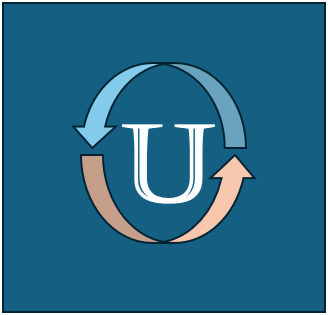If your are someone, an individual with a self-employed income, this lesson will teach more deeper about the difference self-employment business income and tax related information.
A short definition of Self-Employment to expect that clears any misunderstanding as self-employed business owner.
Self-employment- Income earned by an individual from their own business, trade, or profession. This can include income from freelancing, consulting, independent contracting, sole proprietorship, or any other type of business venture where the individual is not considered an employee.
Here go Taxable Deductions you Business owner can use to minimize your taxable income.
As a self-employed individual, you can deduct business expenses on your tax return to reduce your taxable income. These deductions can include:
Business use of your home (home office deduction)
Business use of your car
Equipment, supplies, and materials
Travel expenses
Advertising and marketing expenses
Insurance premiums
Rent or lease payments
Utilities
Professional fees
Reportable Forms
Self-employment income is typically reported on the following forms:
Form 1040: Individual Income Tax Return
Schedule C (Form 1040): Profit or Loss from Business
Schedule SE (Form 1040): Self-Employment Tax
Minimum Taxable Income
There is no minimum amount of self-employment income that is exempt from taxation. However, you are required to report self-employment income on your tax return if your net earnings from self-employment are $400 or more.
Income Source
Self-employment income can be sourced from both domestic and foreign clients. If you receive income from foreign clients, you may be subject to additional reporting requirements, such as filing Form 8938 (Statement of Specified Foreign Financial Assets) or Form 5471 (Information Return of U.S. Persons With Respect To Certain Foreign Corporations).
IRS Regulations
The IRS has specific regulations and guidelines for self-employed individuals, including:
Self-Employment Tax: Self-employed individuals are required to pay self-employment tax on their net earnings from self-employment, which includes income from freelancing, consulting, and other business activities.
Business Expense Deductions: Self-employed individuals can deduct business expenses on their tax return, but must keep accurate records and documentation to support these deductions.
Estimated Tax Payments: Self-employed individuals are required to make estimated tax payments throughout the year to cover their tax liability.
Joint Income Filing or Separate or Individual Filing
Self-employed individuals can file their tax return jointly with their spouse, separately, or as an individual. The filing status will depend on the individual's specific situation and tax strategy.
Joint Filing: If you are married and file jointly, you and your spouse will report your combined self-employment income and deductions on your tax return.
Separate Filing: If you are married and file separately, you and your spouse will report your self-employment income and deductions on separate tax returns.
Individual Filing: If you are single or file as an individual, you will report your self-employment income and deductions on your tax return.
Income Qualification
To qualify as self-employment income, the income must meet the following criteria:
Business Activity: The income must be earned from a business activity, such as freelancing, consulting, or operating a sole proprietorship.
Net Earnings: The income must be subject to self-employment tax, which means that the net earnings from self-employment must be $400 or more.
Risk of Loss: The individual must be at risk of loss, meaning that they have the potential to earn a profit or incur a loss from their business activity
Other Self-Employment Income Descriptions
Hobby Income: If you earn income from a hobby, it may be considered self-employment income if you intend to make a profit.
Rental Income: Rental income from real estate can be considered self-employment income if you provide significant services to the tenants.
Royalty Income: Royalty income can be considered self-employment income if it is earned from a business activity.
I hope this information helps! Let me know if you have any further questions or need additional clarification.
Here are some additional resources:
IRS Publication 334: Tax Guide for Small Business
IRS Publication 535: Business Expenses
IRS Form 1040: Individual Income Tax Return
IRS Schedule C (Form 1040): Profit or Loss from Business
IRS Schedule SE (Form 1040): Self-Employment Tax
Please let me know if you'd like me to expand on any of these topics or provide more information. I'll do my best to provide a detailed response.





